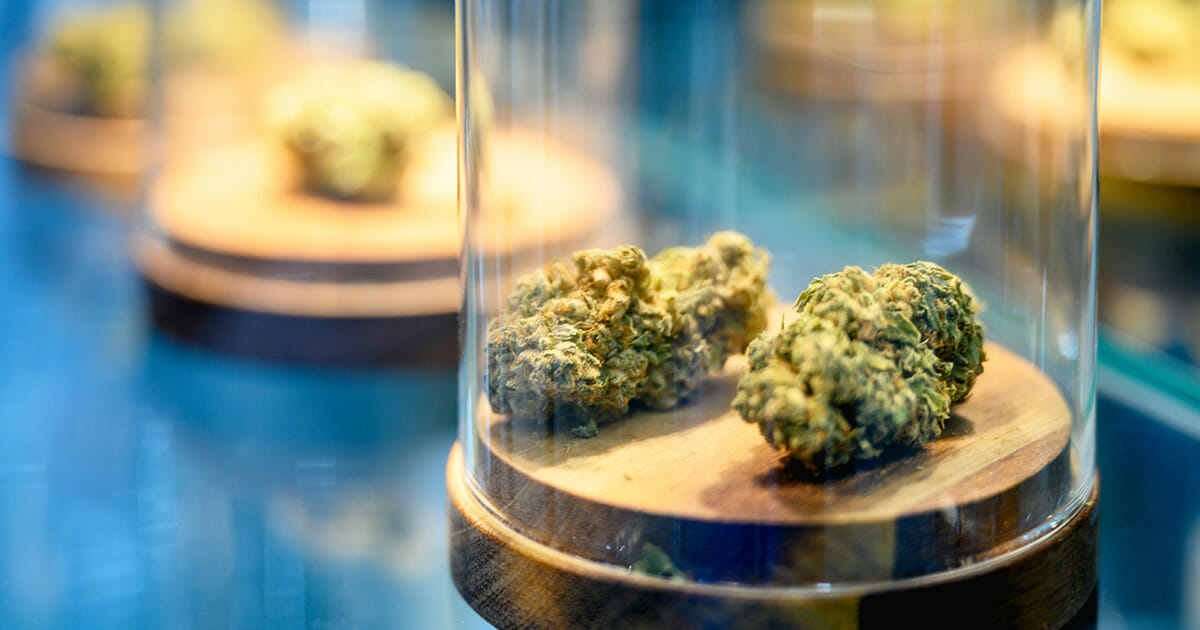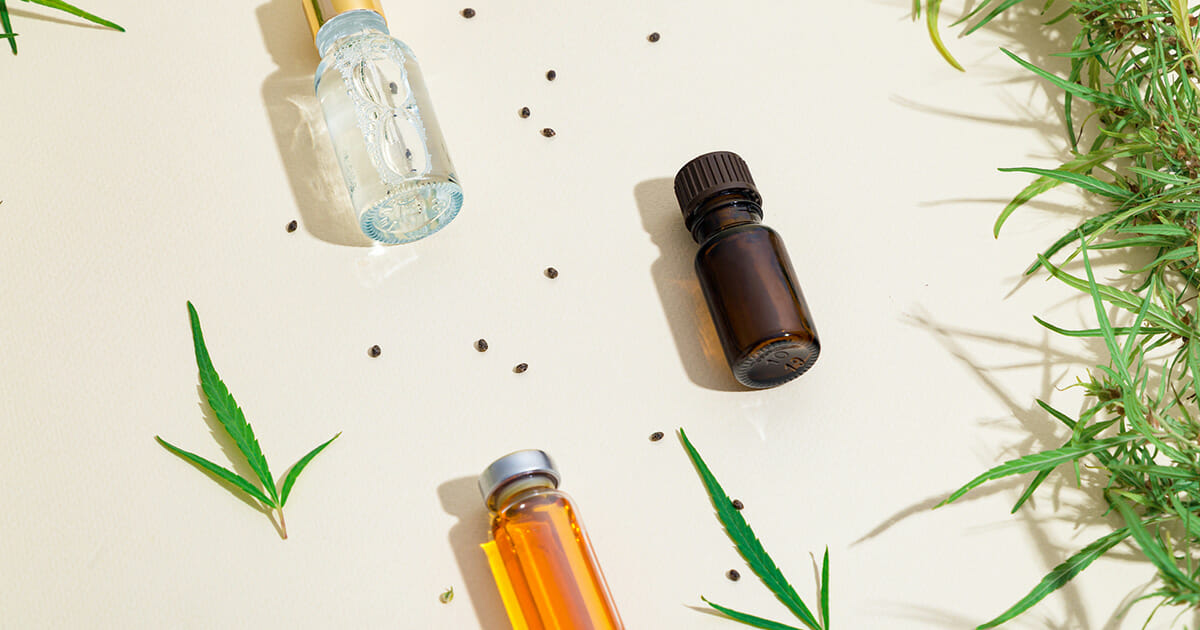Does Marijuana Make You Lazy?
Written by Chris Weatherall on Feb 24, 2022
Does consuming cannabis make you lazy? With increased states legalizing marijuana for both medical and recreational purposes, marijuana is becoming more common and more accepted in social circles. However, the stereotype of marijuana users being “chill,” passive, unmotivated and lazy has somehow survived.
Though cannabis has been demonized for years, it is finally becoming more understood and valued for all its potential benefits. For many marijuana users, it is equally important to dispel the unfair myths that come along with its use.
If you are considering trying legal medicinal or recreational cannabis, it is important to get the facts regarding its potential side effects. You’ll be able to begin your experience with an open mind and truly experience marijuana’s many positive assets.
The Misconception of Cannabis and Laziness?
A common misconception about marijuana is that it makes users lazy and unmotivated. However, the opposite seems to be true in most cases. Some researchers believe that cannabis can increase both creativity and productivity. [1]Malceva, M., Vikmane, M., & Stramkale, V. (2011). Changes of photosynthesis-related parameters and productivity of Cannabis sativa under different nitrogen supply. Environ Exp Biol, 9, 61-69. In fact, many successful people credit marijuana with helping them develop the very traits, habits, creativity, and skills that led to their success.
Where Did the Stereotype Come From?
To understand why this myth is so pervasive, it’s important to first understand the history of marijuana. Cannabis had been in regular use for centuries [2]Carlson, E. T. (1974). Cannabis indica in 19th-century psychiatry. American Journal of Psychiatry, 131(9), 1004-1007. before unsavory political figures created laws to demonize its consumption—primarily to target immigrants and minorities.
By the time the film Reefer Madness [3]Boyd, S. (2010). Reefer madness and beyond. In Popular culture, crime and social control. Emerald Group Publishing Limited. was created to perpetuate this stereotype, the federal government had initiated a federal ban, and media portrayal of its so-called ill-effects helped convince many legislators to vote in its favor. Throughout the 20th century, the “stoner” stereotype was often portrayed in the media. In both television and film, characters who smoke marijuana were depicted as lazy and unmotivated. In most cases, this laziness was shown as leading to social irresponsibility, poor hygiene (think dirty hippies), and lawlessness.
In reality, people using marijuana during this time may have been self-medicating for a mental condition, choosing to use a different coping mechanism than the pharmaceuticals available at the time, pursuing better sleep, or simply enjoying a nontraditional method of increasing productivity and creativity.
Why Does the Laziness Stereotype Continue?
Even without the unfair depictions in the media [4]Mortensen, T. M., Moscowitz, L., Wan, A., & Yang, A. (2020). The marijuana user in US news media: An examination of visual stereotypes of race, culture, criminality and normification. Visual … Continue reading, it is easy to see how outsiders may have been led to believe marijuana makes users lazy. Since marijuana has been known to help with sleep, it is not uncommon to assume that marijuana users are lazy because they “sleep all the time.” The myth of constant sleep likely started because many people who smoke marijuana before bed do report falling asleep faster and sleeping longer.
However, this does not mean that marijuana causes you to sleep all day long while you should be awake. In fact, falling asleep faster and staying asleep longer can give you more energy throughout the day. As evidence, there are many people who use marijuana, both medically and recreationally, hold down full-time jobs, and live successful, happy lives. Managing a work schedule and using marijuana to achieve the best effects does not seem to take away from motivation or drive.
Can Marijuana Make You Unmotivated?
In short, it is a difficult claim to find direct research to support. However, there is little to no existing scientific evidence to support this claim. There is also no evidence to suggest that marijuana makes users any lazier than those who drink a glass of wine before bed. Like anything else, moderation is key, and it is important for those who are considering trying marijuana in a safe and controlled environment.
Should I Be Worried About My Productivity Levels If I Am Considering Using Marijuana?
The short answer is no. It’s understandable that you may be concerned about how using marijuana may affect your productivity.
But, keep in mind the following:
- There are literally more than 700 known cannabis strains
- There are 400 chemical entities in the cannabis plant and more than 60 of them are cannabinoid compounds
- There are over 120 different types of cannabis terpenes and every strain has a unique composition
So, although science is still studying the effects of the cannabis plant [5]Baron, E. P., Lucas, P., Eades, J., & Hogue, O. (2018). Patterns of medicinal cannabis use, strain analysis, and substitution effect among patients with migraine, headache, arthritis, and chronic … Continue reading, no one can honestly say every strain, cannabinoid and terpene causes the same result: laziness. There is just no way!
In fact, many people who use marijuana have reported that if they hit the ganga before they hit the books they find themselves to be more productive and able to get their work done faster.
Some cannabis users also report feeling more creative when they are high, which can make them better problem-solvers and aid in brainstorming. Not sure what to look for? Look for a strain with a profile that other users have reported provides the desired effect.
For example:
- Limonene is best for improving mood
- Caryophyllene is best for stress relief
- Myrcene helps with discomfort
- Pinene is the number one reported terp for inspiration
Again, it is important to remember that everyone reacts differently to marijuana, so it is important to experiment a bit to find out what strains work best for you. As you gain some experience, you’ll be able to develop a routine that works best for what you are trying to accomplish.
Why Don’t We Have More Research to Support or Disprove Cannabis Laziness Claims?
Most of what we know about marijuana and its effects is from anecdotal evidence and user reports. [6]Dreher, M. (1983). Marihuana and work: Cannabis smoking on a Jamaican sugar estate. Human Organization, 42(1), 1-8. Some of the research that has been done is purely observational, and it is difficult to draw any concrete conclusions or produce hard data. Until marijuana is legalized on a federal level, researchers cannot perform double-blind studies on humans regarding marijuana’s effects.
The best we can do for now is to build a general conclusion based on the mountains of user testimonials and success stories. Knowledge of and experience with marijuana is growing, and with it, the myths around the drug are beginning to dissipate. It is important for those considering trying marijuana to start slow and regulate their consumption.
Regulating Your Marijuana Consumption is Key
To get the most out of your marijuana consumption, it is key that you stay in control. Since everyone reacts differently, it is important to try a small amount of different strains separately until you know what works best for you. Also, remember that it is not necessary to smoke marijuana every day, especially at first. Try to space out your sessions to see how each strain or dosage works and get a feel for your preferences.
Make sure to note how consumption affects the various aspects of your day. For example, if you do not see positive effects when you use marijuana before schoolwork but do experience positive effects during exercise, adjust your consumption time accordingly. This will help you regulate your marijuana use and get the most out of its benefits.
Remember—everyone uses marijuana in a unique way that works with their own lifestyle, so it is important to experiment with your consumption options. It can be an exciting process to find out what works best for you, so enjoy it! During the process, make sure that you are checking in with yourself to see how you are feeling.
Do I Have to Smoke Cannabis?
Until recently, it was nearly impossible to access the benefits of marijuana without smoking or cooking it before eating to create the combustion needed. Now that vape pens and edibles are becoming more easily accessible in reputable dispensaries, the options are seemingly limitless. However, if you are considering trying marijuana for the first time, you might want to talk to your local dispensary before deciding what cannabis products and consumption methods are right for you.
Smoking allows you to access full marijuana effects quicker than some other dosing methods, such as edibles. This is good for someone that needs quick relief. However, smoking is just not for everyone. It can be work to set it up, find somewhere to smoke discreetly and store the necessary accessories. On the other hand, if you’re new and want to try smoking, it’s as easy as grabbing a preroll at your local dispensary.
Vaping is a popular option, but can be a little pricer as the concentrates have to be reduced and packaged. Vaping is said to be healthier, however, as the oil doesn’t take as much heat to intake which creates less tar and other carcinogens. Just be sure you’re buying a quality product. There are plenty of bogus brands that add artificial flavoring instead of using natural terpenes.
While edibles can produce some solid effects, the THC must be digested first and before entering the bloodstream, so the effects will take longer to kick in and will likely last longer. If you are new to cannabis be very careful about how many mg’s you ingest. Edibles can creep up on you and seriously kick your butt if you eat too much. Start small, like 5-10mg and see how you feel. That is a small dose for a more experienced user, but one bite of a 100mg brownie is all you need if you are new- NOT the full brownie, trust us.
Overall, the method you use to consume marijuana will depend on you and what you are comfortable with. Whether you choose smoking, edibles, concentrates, tinctures or topicals, we always suggest you perform careful research regarding the strain, potency, and intended effects.
Discover How Cannabis Can Benefit You and Your Lifestyle

The next time you are considering trying cannabis, do not worry about suddenly becoming lazy and unproductive. Many compounds found in the cannabis plant may help improve your life, help you sleep better at night, and help you find the energy you need to be successful. Plus, you don’t have to ingest it, you know that, right? Having hand pain? Use a topical. Want relief without any “high”? Use CBD. Cannabis has many forms, comes in many types of products and has many uses.
If you’re interested in learning more about how this amazing plant can benefit you, be sure to sign up for our newsletter below and follow us on social media! We’re out here sharing honest and well researched cannabis information for the public, show your support fam!
And, if you’re in Arizona, come see us! We’re one of the oldest dispensaries in Arizona and our boutique Mesa dispensary only carries the best AZ has to offer.

I’m a kid at heart disguised as a cannabis researcher and business owner. I’ve always enjoyed providing insight in the form of reviews (anime, video games, etc.) So, when the cannabis industry took off, it sparked my interest in researching, reviewing, and chronicling all things within. When I’m not researching, I’m spending time with my family, riding my motorcycle, and finding new entrepreneurial pursuits.
Sources:
| ↑1 | Malceva, M., Vikmane, M., & Stramkale, V. (2011). Changes of photosynthesis-related parameters and productivity of Cannabis sativa under different nitrogen supply. Environ Exp Biol, 9, 61-69. |
|---|---|
| ↑2 | Carlson, E. T. (1974). Cannabis indica in 19th-century psychiatry. American Journal of Psychiatry, 131(9), 1004-1007. |
| ↑3 | Boyd, S. (2010). Reefer madness and beyond. In Popular culture, crime and social control. Emerald Group Publishing Limited. |
| ↑4 | Mortensen, T. M., Moscowitz, L., Wan, A., & Yang, A. (2020). The marijuana user in US news media: An examination of visual stereotypes of race, culture, criminality and normification. Visual Communication, 19(2), 231-255. |
| ↑5 | Baron, E. P., Lucas, P., Eades, J., & Hogue, O. (2018). Patterns of medicinal cannabis use, strain analysis, and substitution effect among patients with migraine, headache, arthritis, and chronic pain in a medicinal cannabis cohort. The journal of headache and pain, 19(1), 1-28. |
| ↑6 | Dreher, M. (1983). Marihuana and work: Cannabis smoking on a Jamaican sugar estate. Human Organization, 42(1), 1-8. |






